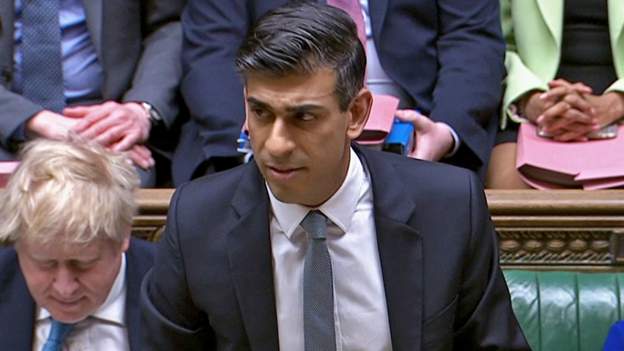Rishi Sunak unveils mini spring budget
Yesterday the chancellor announced this spring budget after saying the Brits are facing the most “significant impact” will be on the cost of living.
He warned the UK’s post-pandemic recovery had been blown off course by the war in Ukraine.
But he held out the promise of an income tax cut in 2024 when he said the economy would be in better shape.
Fuel duty cut by 5p
Sunak outline measures to help. First is a 5p cut to fuel duty – “the biggest cut to all fuel duty rates ever”. This came into force at 6pm last night (March 23) and will last until March next year, he says.
The average price of a litre of petrol has risen more than 40p a litre since last year’s Spring Statement, which means the government is getting an extra 7p per litre in VAT.
Diesel prices are up by nearly 50p a litre, almost 9p of which is VAT. Motoring group, the RAC, says cutting fuel duty by 5p will take £3.30 off the cost of filling a typical 55-litre family car.
0% VAT on energy-saving materials
Sunak says for the next five years, homeowners will pay 0% VAT on energy-saving materials, such as solar panels or heat pumps. The chancellor says he can make the move as a result of Brexit.
Doubled household support fund
Sunak said the government’s household support fund, money for councils to support vulnerable households – will be doubled to £1bn from April.
NI minimum threshold
The Chancellor has announced a big increase in the National Insurance minimum threshold – the level at which people start paying the tax on wages.
From July, the threshold will now rise by £3,000 to £12,570, bringing it in line with the income tax threshold.
While announcing the Employment Allowance will increase to £5,000, claiming it is a tax cut worth up to £1,000 for half a million small businesses.
Following Sunak’s announcement, the Shadow chancellor Rachel Reeves: “The truth is people can no longer afford the Conservatives – working families can’t, pensioners can’t.”
She points to “weak” growth forecasts, and says the Conservatives have to take the blame, having “been in government for 12 years, not 12 hours”.
She attacks the chancellor for raising taxes more than any chancellor in the last 50 years.
“Please tell me what else I can be doing”
She told him that she had reduced her grocery bill to £15 a week, and sometimes goes without food so her children can eat. She said that she and her children had every light possible off, the boiler off, and could sometimes see their breath as they sat in their jumpers and coats. In addition to her main job, she has taken on extra cleaning and a job riding a bike delivering for Uber Eats.
The caller said measures to help on energy bills so far “isn’t going to cut it” and asked him: “Please tell me what else I can be doing.”
In reply, Sunak said he “cannot imagine how difficult” her job was, as he has a “wife and other help”, adding that he pays tribute to her for “working your socks off”. He pointed to the energy bill rebate and higher national insurance threshold that will give a tax cut in July, although it will only offset a tax rise due in April.
‘Brits worse off’
The respected Institute for Fiscal Studies said soaring inflation and frozen income tax thresholds will leave Brits worse off – despite fuel duty and National Insurance cuts in the Spring Statement, and the promise of a 1p income tax cut in 2024.
A median earner on £27,500 will be £360 worse off in 2022/23 than in 2021/22 – and a £40k earner will be nearly £800 worse off, the IFS said.
The IFS said even counting the tax cuts announced yesterday, overall, the Chancellor has still raised taxes by nearly as much as Gordon Brown did over a decade.
